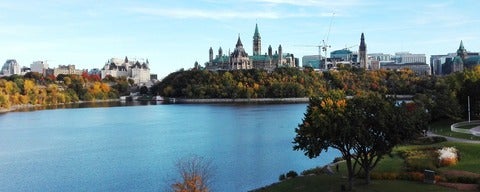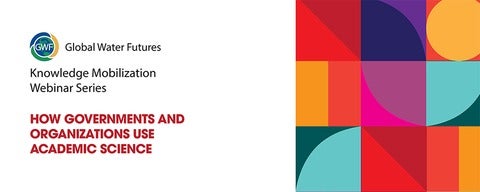Fish farming tech earns alumnus a national award
An alumnus of Waterloo's System Design Engineering and 2017 winner of the AquaHacking competition who parlayed his graduate research into a startup company that is out to solve worldwide water problems has been recognized by a national innovation organization.
Jason Deglint, a co-founder of Blue Lion Labs, is one of five winners of a Mitacs Entrepreneur Award for turning research into businesses that impact the lives of Canadians.







